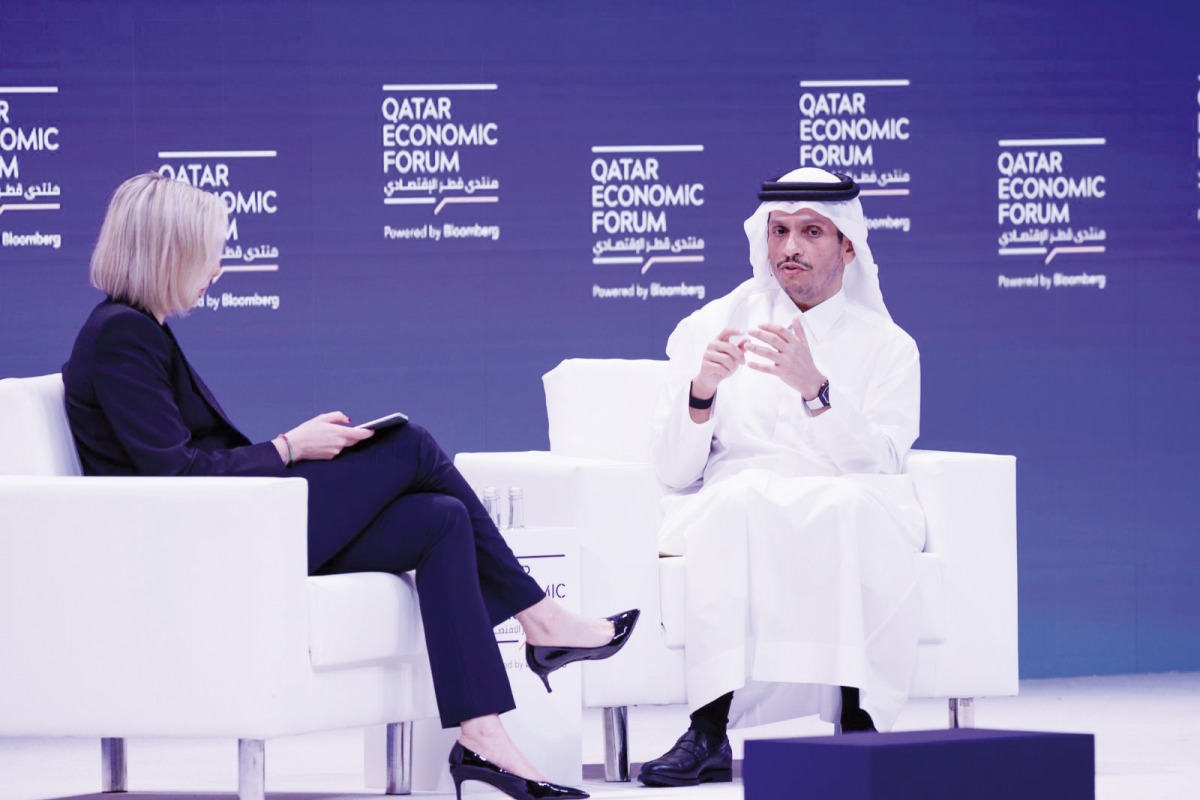The Prime Minister and Minister of Foreign Affairs H E Sheikh Mohammed bin Abdulrahman bin Jassim Al Thani recently participated in a discussion panel at the Qatar Economic Forum, where he stressed the importance of reaching an agreement to end the ongoing fighting in the Gaza Strip. He emphasized the need to stop the atrocities against civilians, negotiate the release of hostages, and ultimately reach a ceasefire. Despite facing challenges, Qatar continues to work as a mediator in the conflict and is working with partners to facilitate an agreement between the warring parties.
The Prime Minister highlighted the difficulties in the negotiation process, as there are fundamental differences between the two sides. One side wants to end the war before discussing the hostages, while the other side wants to release the hostages and continue the war. This lack of understanding makes it challenging to reach a resolution. The situation in the Gaza Strip is dire, with reports indicating that reconstruction could cost billions of dollars and may continue until 2040. The Prime Minister warned about the risks of war or violence spreading in the region if the conflict continues.
Regarding Qatar’s mediation efforts, the Prime Minister discussed the presence of a political office for the Hamas movement in Doha since 2012. This office has played a significant role in facilitating communication between Hamas, the Israelis, and Americans, leading to the release of hostages during negotiations. Qatar’s mediation efforts aim to create channels of communication between conflicting parties to resolve disputes and find regional consensus. The State of Qatar continues to support the Palestinians and advocate for a two-state solution.
Looking ahead, the Prime Minister discussed Qatar’s investment plans, emphasizing a diversification strategy that includes expanding into emerging markets like Central Asia and Africa. The focus is on secure investments with guaranteed returns for the benefit of future generations. Domestically, Qatar is implementing its Third National Development Strategy to focus on human capital and empower the private sector. The goal is to build on past achievements and transition to a more regulatory role for the government.
In terms of economic relations with neighboring countries, the Prime Minister highlighted the cooperation between Qatar and Saudi Arabia, stressing the mutual benefits of strong interconnectivity within the Gulf region. He discussed the challenges and opportunities of attracting American and Chinese investments to Qatar amid intense competition. The Prime Minister emphasized the importance of establishing economic peace to complement political peace efforts in the region.
The Prime Minister addressed the preference of dealing with Republican or Democratic American administrations, stating that Qatar prioritizes long-term institutional relations with the U.S. government, regardless of the president in office. He noted that there are common approaches and shared views on regional issues, regardless of the political party in power. As Qatar focuses on regional security as the top priority during its presidency of the Gulf Cooperation Council, the Prime Minister emphasized the need for partners in the Gulf countries to work together to ensure security and stability in the region.
In conclusion, the Prime Minister expressed his deep concern about the escalation and continuation of war in the region. He emphasized the importance of preserving security in the region to prevent further conflicts and ensure stability. Qatar remains committed to its role as a mediator, working with partners to facilitate dialogue and reach agreements between conflicting parties.






























